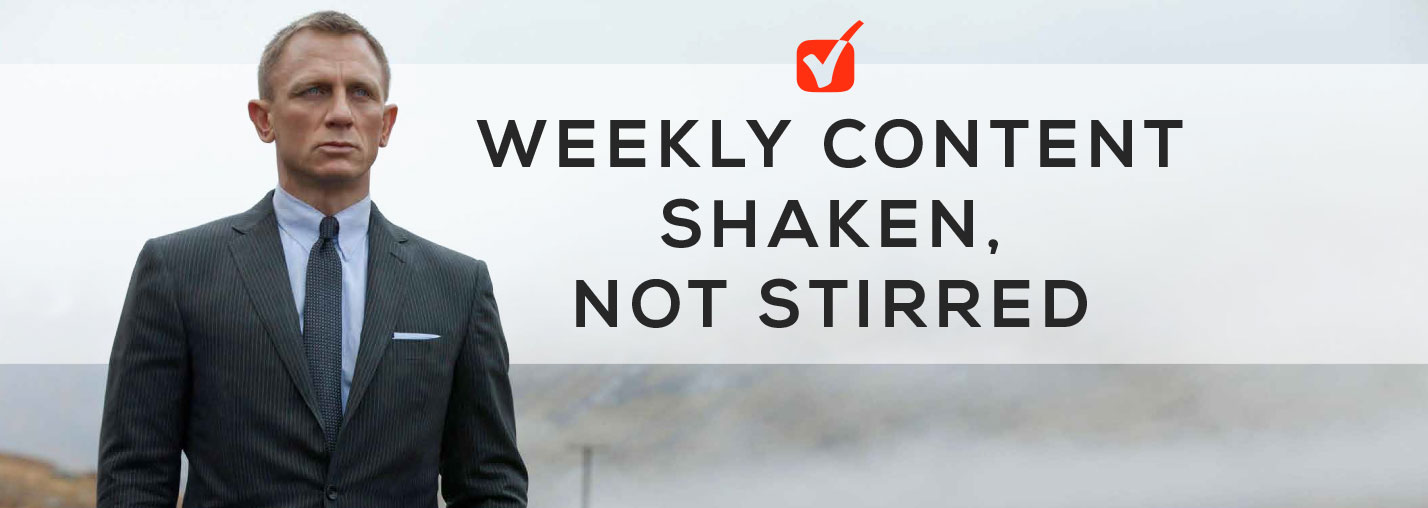6 TED TALKS EVERY MAN MUST HEAR Open Your Mind
Everyone should listen to TED Talks. Period. They’re a bunch of unique topics expertly presented by brilliant speakers for plebeians like us. Plus, they’re all under 20 minutes. And I know what you’re saying, “But Justin, there are so many! How ever will I choose which ones to listen to?” Fear not, my dear friend; with a penchant for dangling prepositions, I’ve waded my way through many a fantastic TED Talk and I’ve returned to bring you only the cream of the crop. Check it out.
Do Schools Kill Creativity?
We begin with the most famous TED Talk of all time. With over 45 million views, Sir Ken Robinson’s delightful exploration of creativity and education simply cannot be missed. In it, Robinson explores the ways most educational systems seek to mold good workers rather than foster creative thinkers, and what we can do about it. This talk is funny, soothing, entertaining, and exquisitely insightful in its uplifting appreciation of humanity’s multiple forms of intelligence. If you’re an artist or simply a creative soul, this will definitely inspire you.
How Great Leaders Inspire Action
If you’re reading this blog, you should watch this. I rewatch it about once a year. Simon Sinek walks us through a very simple idea called the “golden circle” which he calls "a naturally occurring pattern, grounded in the biology of human decision making, that explains why we are inspired by some people, leaders, messages and organizations over others." Put in other words, “People don’t buy what you do, they buy why you do it.” By exploring the branding concepts and communication strategies behind Apple Computers and the messaging of Martin Luther King Jr., Sinek makes insightful connections that I’m sure you’ll be able to apply in your daily life.
If I Should Have a Daughter
I have the biggest crush on Sarah Kay and the real reason you should listen to this is because her poetry is great. As a 14-year-old, she hid under the bar in the East Village’s famed Bowery Poetry Club in order to not only absorb the words of America’s best poets, but also to get up on stage and perform. With a masters in teaching from Brown University and an honorary doctorate from Grinnell College, Kay went on to found Project VOICE which runs spoken word workshops for people in the continual fight for literacy and community empowerment.
The Psychology of Evil
This is a personal favorite of mine. Philip Zimbardo rose to prominence as the leader of the infamous Stanford Prison Experiment of 1971 and again later as an expert witness to the abuse at Abu Ghraib. Zimbardo paints a haunting portrait of the nature of evil, its banality, and its tendency to hide itself within bureaucratic structures. After 50 years of field work and teaching, Zimbardo then turns from examining systemic evil to examining heroism and particularly, "What pushes some people to become perpetrators of evil, while others act heroically on behalf of those in need?" It’s eerie and insightful and a lesson not soon forgotten.
Your Body Language Shapes Who You Are
You’ve heard of “power posing?” Here’s the science behind it. Amy Cuddy is a professor and researcher at Harvard Business School who studies the ways in which nonverbal behavior and snap judgments affect people in the various arenas of life. Her work explores the idea that not only can you change others’ perceptions of you simply by adjusting your body language, but you can even change your own testosterone and cortisol output. Much of the scientific consensus behind “power posing” keeps changing but this is the place to start.
The Power of Vulnerability
Brené Brown has spent the past 10 years studying the same four human emotions we all encounter every day: vulnerability, courage, authenticity, and shame. The central questions of her work include: “How do we learn to embrace our vulnerabilities and imperfections so that we can engage in our lives from a place of authenticity and worthiness? How do we cultivate the courage, compassion, and connection that we need to recognize that we are enough – that we are worthy of love, belonging, and joy?” I particularly recommend this one to follow up the Psychology of Evil talk when you need more of a boost for your belief in humanity.






